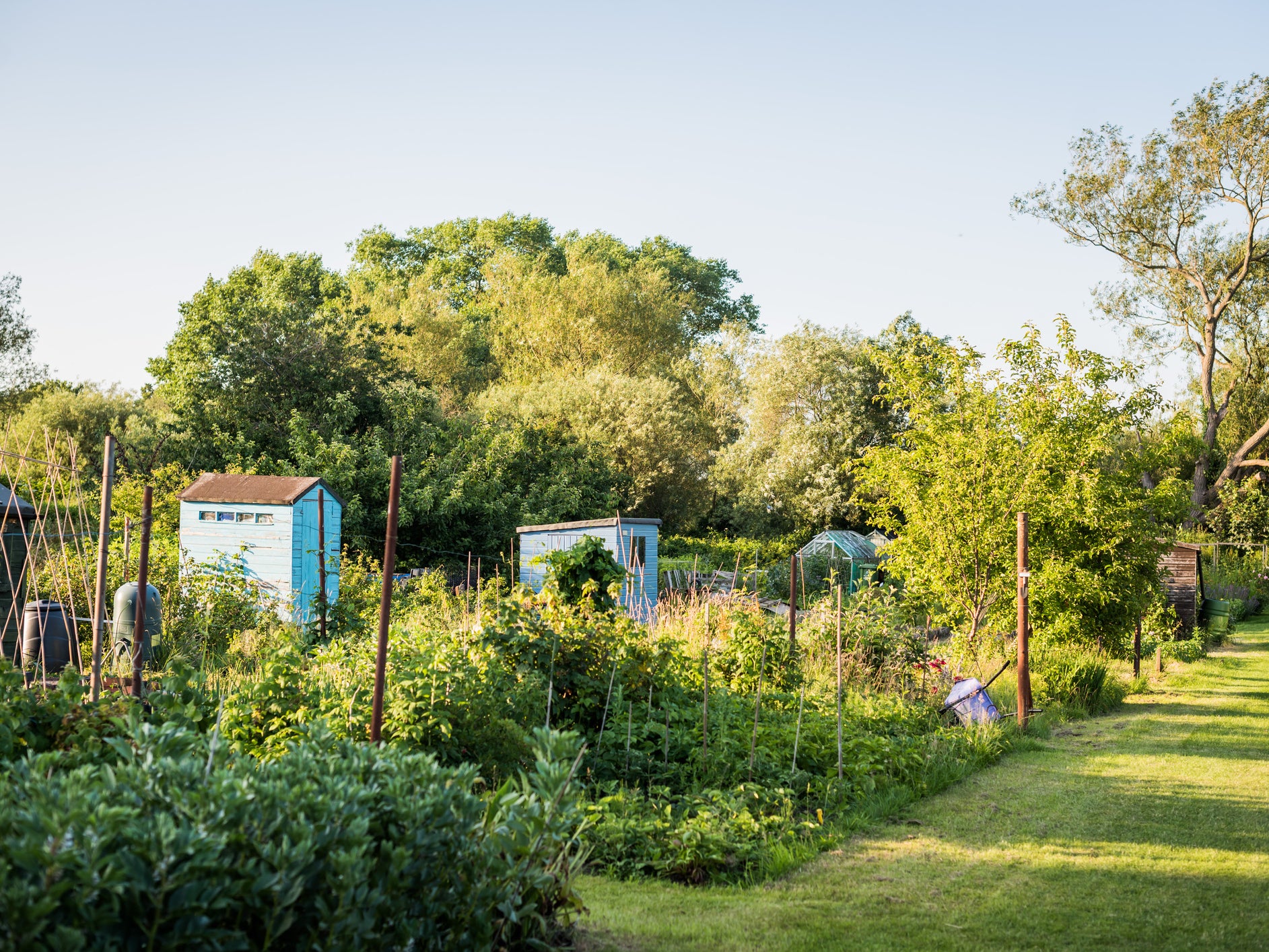As gardeners turn to growing own food, research reveals dramatic decline in urban allotments over last 50 years
Waiting lists are growing longer but one easy solution to problem is at hand, researchers say

Your support helps us to tell the story
From reproductive rights to climate change to Big Tech, The Independent is on the ground when the story is developing. Whether it's investigating the financials of Elon Musk's pro-Trump PAC or producing our latest documentary, 'The A Word', which shines a light on the American women fighting for reproductive rights, we know how important it is to parse out the facts from the messaging.
At such a critical moment in US history, we need reporters on the ground. Your donation allows us to keep sending journalists to speak to both sides of the story.
The Independent is trusted by Americans across the entire political spectrum. And unlike many other quality news outlets, we choose not to lock Americans out of our reporting and analysis with paywalls. We believe quality journalism should be available to everyone, paid for by those who can afford it.
Your support makes all the difference.The quantity of land used for allotments in urban areas has fallen by 65 per cent over the past 50 years, new research has revealed.
The removal of allotments has been much more pronounced in poorer areas, where there have been eight times the amount of closures than in the wealthiest neighbourhoods, a research team from the University of Sheffield has found.
But there has been a huge surge in demand for urban allotments in recent years, and restoration of former allotments could be one easy means of meeting this public desire for somewhere to grow plants.
In recent weeks the coronavirus outbreak has inspired a surge in interest in growing fruit and vegetables, with The Royal Horticultural Society reporting it had seen a spike in visits to its website pages with advice on how to grow your own vegetables, fruit and edible plants.
Meanwhile stockists have also seen a surge in sales of vegetable seeds, seed potatoes and herbs, as well as other plants and gardening equipment.
The peak amount of land dedicated to allotments in the UK was in the 1940s to 1960s, after the Second World War, but subsequent years have seen a steep decline.
The academics at the Institute for Sustainable Food at the University of Sheffield analysed historic maps covering Bristol, Glasgow, Leicester, Liverpool, Milton Keynes, Newcastle, Nottingham, Sheffield, Southampton and Swansea from the beginning of the 20th century to 2016.
By 2016, little over a quarter of all land areas historically recorded as allotments were still allotment land, and almost half (47.9 per cent) had been built on.
Another quarter had become different types of green space.
The study found the lost land could have grown an average of 2,500 tonnes of food per year in each city.
Councils have a legal obligation to provide enough growing space to meet demand, the team said.
In England, waiting lists grew from fewer than 10 people per 100 plots in 1996, to more than 50 for every 100 plots by 2013.
But the researchers said that for four out of the five cities for which waiting list data was available – Southampton, Newcastle, Leicester and Sheffield - they would be able to meet current demand by restoring former allotments that had been converted to green space.
On average, three quarters of this land was suitable for re-conversion – with the potential to feed an extra 14,107 people.
There are also other benefits. Previous research has found found allotments and gardens often had 10 times more bees than parks, cemeteries and urban nature reserves as the mixture of plants attracted pollinators.
Lead author of the new research, Miriam Dobson said: “With waiting lists growing ever longer, this trend of declining allotment land is worrying – but our research has shown that one way councils could meet demand simply by restoring former sites.
“Growing our own fruit and veg has huge benefits for people’s health and well-being, and can contribute to local food security and improve our environment.
“Our findings strengthen the case for preserving existing plots and boosting growing space, particularly in deprived areas, to share those benefits more fairly across our cities.”
The research is published in Landscape And Urban Planning.
Additional reporting by PA
Join our commenting forum
Join thought-provoking conversations, follow other Independent readers and see their replies
Comments